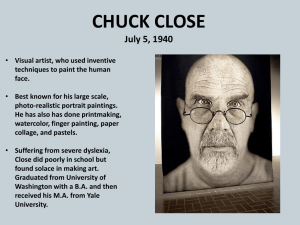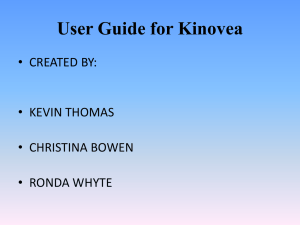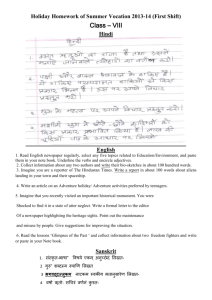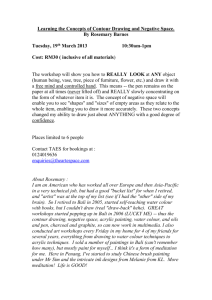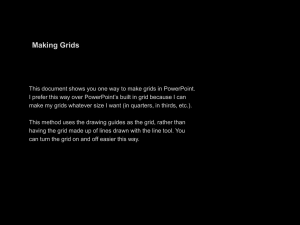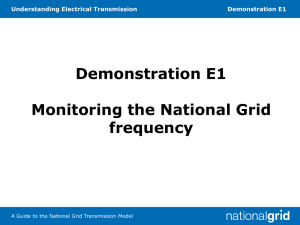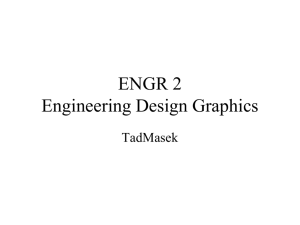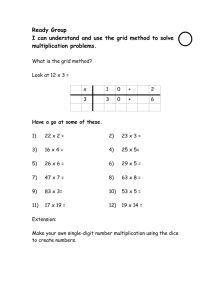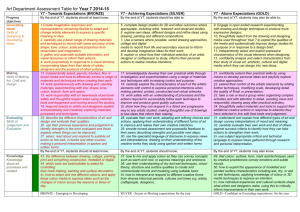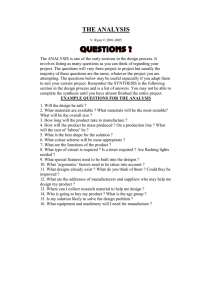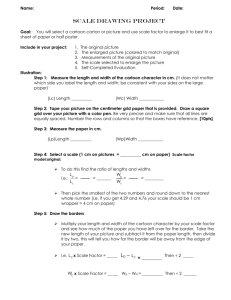Visual Communication and Design Holiday Homework 2015.
advertisement
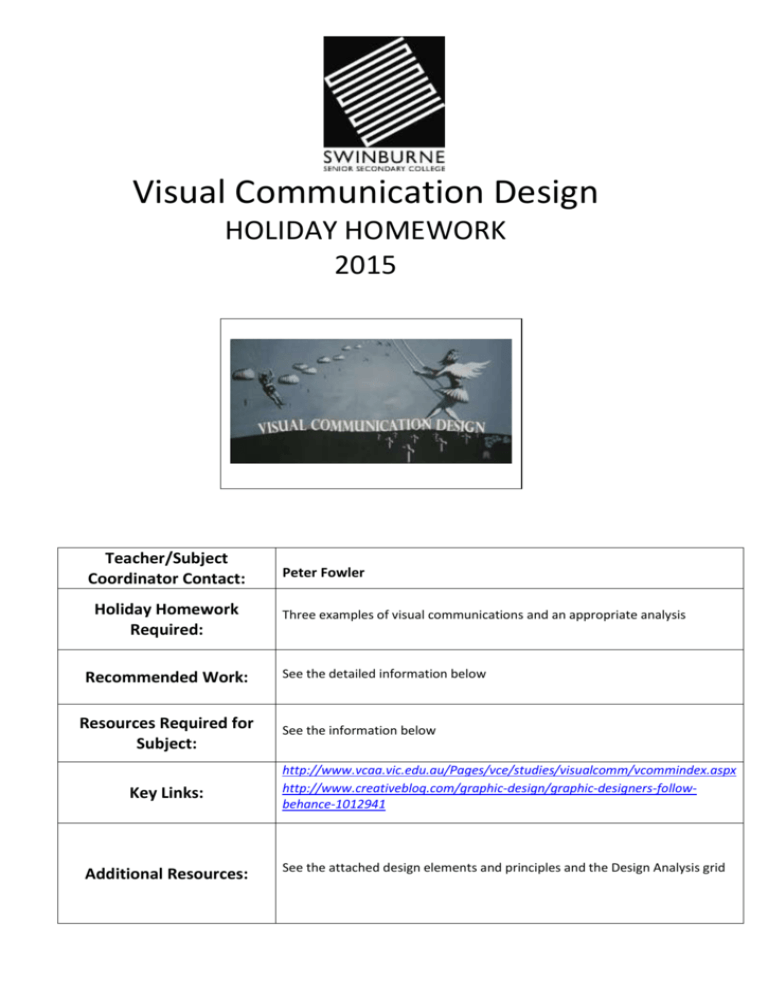
Visual Communication Design HOLIDAY HOMEWORK 2015 Teacher/Subject Coordinator Contact: Holiday Homework Required: Recommended Work: Resources Required for Subject: Key Links: Additional Resources: Insert Relevant Subject Image here Peter Fowler Three examples of visual communications and an appropriate analysis See the detailed information below See the information below http://www.vcaa.vic.edu.au/Pages/vce/studies/visualcomm/vcommindex.aspx http://www.creativebloq.com/graphic-design/graphic-designers-followbehance-1012941 See the attached design elements and principles and the Design Analysis grid Unit 3/. Visual Communication and Design Holiday Homework 2015. Analysis of Visual Communication contributes to the first SAC in Unit Three This task is aimed at becoming familiar with the analysis of how design elements, design principles, methods media and materials are used in visual communications to achieve a particular purpose for a targeted audience Students should gather examples of effective Graphic Design and provide a written analysis and evaluation of each. When selecting your designs choose approximately, three different types of presentation formats from communication, environmental or industrial design. Please don’t choose three advertisements, vary the format so you look at a range of approaches. The designs may include websites, packaging, brochures, poster or advertising material, industrial design, product design, interior design or environmental design. Each design analysis and evaluation needs to provide information on the intended audience, the purpose of the design the context of the design, the use of design elements and principles the use of materials, media and methods. the effectiveness of the design in communicating its message Students are to use the design analysis grid and an explanation of the design elements and principles (below) to assist with the analysis of their selected designs. The analysis should be written up using the dot points listed above. Please include a visual representation of each design with each analysis and have them ready for submission when school returns on the 29th January 2015 Part of Unit #3 Outcome 1 “Students explore a range of existing visual communications in the communication, environmental and industrial design fields. The focus of each design field is: • communication – the design and presentation of visual information to convey ideas and concepts • environmental – the design and presentation of visual information for built/constructed environments • industrial – the design and presentation of visual information for manufactured products. Students analyse how design elements, design principles, methods, media and materials are used in visual communications in these fields to achieve particular purposes for targeted audiences.” *Quote from VCAA study design Design Analysis Grid This grid enables you to collect information about visual communications. The information will assist you when describing and analysing the example in more detail. Visual Communication Description Map, explanatory diagram, statistical diagram, symbol logo, chart, illustration, 3D model, instrumental drawing, architectural drawing, poster, packaging, signage, multimedia, 2D layout. Describe the visual communication. Age Gender Socio/eco status Interests Other including ethnicity and religion Audience Why? Indicators that determine audience Promote Advertise Depict Explain Teach Inform Guide Other Purpose Why? What aspects of the visual communication identify the purpose? Location/environment: Content: (humour, emotive imagery) Size/scale: Cultural/social/political: Context How does the context affect the visual communication? Design Elements Point Shape Form Tone Texture Colour Line letterform Balance Contrast Scale Proportion Pattern Hierarchy Figure/Ground Cropping Describe Design Principles Describe Methods Drawing Freehand 2D Orthogonal 3D Paraline Perspective Materials Describe Printing Offset Silkscreen Digital Monoprint Relief print intaglio Photography Colour Black & White Digital Paper, caper, wood, metal, glass, clay, stone, plastic, textile Computer Digitally altered image Computer generated image Web design Animation Media Photocopy Colour Black and White 3D process Construction Moulding Casting Pencil, paint, airbrush etc. Digital Media, photographic film
